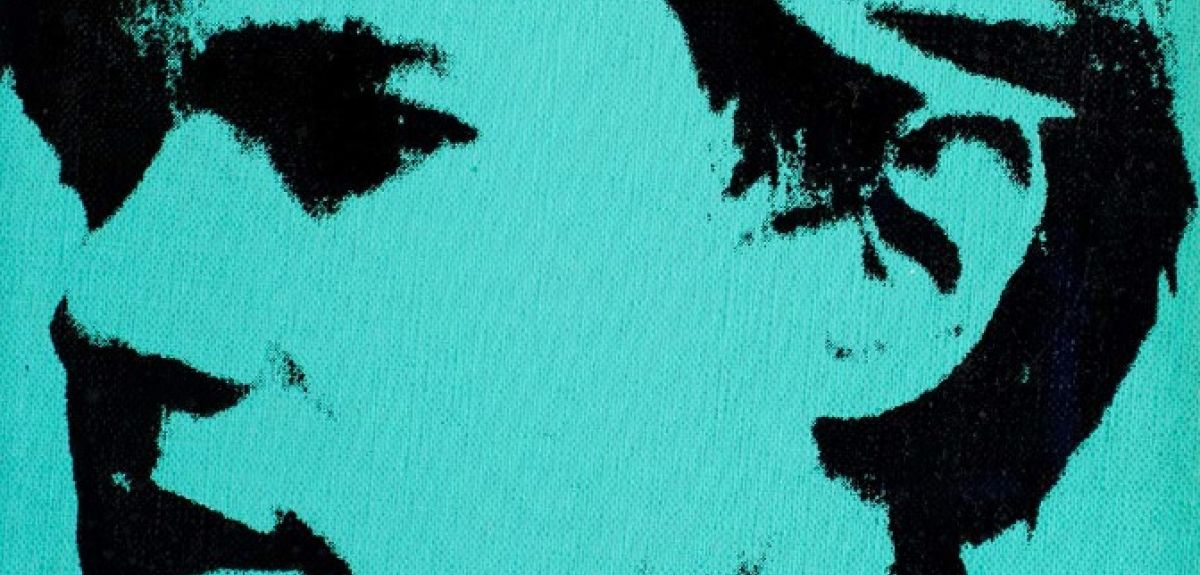
The Andy Warhol Foundation for the Visual Arts Inc; the Artists Rights Society, New York; DACS London
Exhibition of Warhol's art opens at Ashmolean
An exhibition of works by Andy Warhol has opened at the Ashmolean Museum.
The Museum has teamed up with the Hall Art Foundation in the USA, which has lent over 100 paintings, sculptures, screen prints and drawings from its private collection.
The Museum has also been loaned some the artist's films from The Andy Warhol Museum in Pittsburgh.
The exhibition opens today and runs until 15 May 2016.
Dr Alexander Sturgis, Director of the Ashmolean, says: 'We are hugely grateful to the Hall Art Foundation and to Andy and Christine Hall for making this exhibition possible with the generous loan of their superb collection.
'The substance and significance of Andy Warhol's art becomes more evident with each passing decade and this exhibition aims to add to what we know about Warhol by highlighting unfamiliar and surprising works from across his career.'
Sir Norman Rosenthal, The Hall Art Foundation Curator of Contemporary Art at the Ashmolean, says: 'Evermore, Warhol feels like the decisive artist of his generation who peered into the future and saw his world with all its glamour and with all its horror. The Hall's collection of Warhols demonstrates the artist's extraordinarily diverse output, as he reacts to his world with penetrating truthfulness and wit.'
Among the works featured are a series of screen prints of Joseph Beuys, based on a Polaroid photograph taken by Warhol in 1979 when the two giants of postwar art came face-to-face for the first time.
Curated by Sir Norman Rosenthal, the exhibition spans Warhol’s entire career, from iconic works of the '60s to the experimental creations of his last decade. It is arranged chronologically, opening with the early Pop masterpieces and portraits.
The first room includes works from key series such as Flowers and Brillo Soap Pads Box; a group of artists' portraits which features Roy Lichtenstein, James Rosenquist and Frank Stella; as well as some of Warhol’s earliest experiments in screen print portraits with pictures of patrons, friends and celebrities (Troy, Patty Oldenburg, Ethel Scull, Jackie).
Films of the early ‘60s, including Sleep (1963) and Empire (1964) and a selection of Warhol’s Screen Tests, illustrate how the artist engaged with the moving image. This brings us to the point, in 1968, when Warhol was shot and seriously wounded by the feminist activist Valerie Solanas.
The main room of the exhibition is dominated by a spectacular display of Warhol’s commissioned portraits spanning the 1970s right up to the year before his death. The group features performers, socialites and politicians including the singer and songwriter, Paul Anka; American celebrities, Maria Shriver and Pia Zadora; the Princess of Iran; and the West German Chancellor, Willy Brandt.
The room also includes works (Hammer and Sickle, Mao, Dollar Sign, Crosses) that offer typically ambiguous and non-committal social and political commentary; and it features a sequence of pencil portraits from the 1980s based, like the prints and paintings, on photographs of figures such as Ingrid Bergman and Jane Fonda.
The gallery closes with Warhol's response to the challenge of abstraction with Rorschach, Shadows and Oxidation Paintings.
The exhibition's final room concentrates on the productive last years of Warhol’s life. In the Positive/Negative series, Warhol revisited the subject matter of his earliest Pop works - advertising, newspaper headlines and commercial packaging - and explored new territory in overtly political and religious works such as Map of the Eastern U.S.S.R. Missile Bases and Detail of the Last Supper. Another departure was Warhol’s use of simple slogans including Stress!, Art and one of his last works, the uncannily prescient Heaven and Hell are Just One Breath Away.